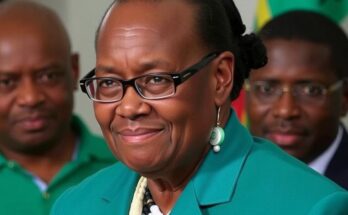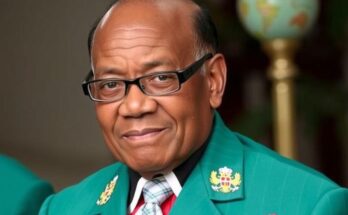Tunisia’s recent elections are expected to secure President Kais Saied a second term amidst significant political repression, concerns over electoral fairness, and a backdrop marked by economic challenges. Saied, responding to earlier public dissatisfaction, has made sweeping constitutional changes, yet faces accusations of authoritarianism and has limited electoral competition. The economic crisis continues to deepen while the opposition voices dissent against what they perceive as illegitimate processes, questioning the future trajectory of Tunisia’s democracy.
Tunisia has recently held elections which are anticipated to secure President Kais Saied a second term in office, amidst allegations of unfair practices and a backdrop of political repression. The 66-year-old president is expected to easily win reelection, following his initial term, which was marked by a notable anti-establishment sentiment. Over the past five years, Saied has enacted significant constitutional changes, consolidating power within the presidency while dismantling parliamentary procedures. This election is Tunisia’s third since the 2011 protests that resulted in the ouster of President Zine El Abidine Ben Ali, the first leader toppled during the Arab Spring. Although international observers have previously commended the democratic nature of these elections, numerous arrests of opposition figures, including prominent candidates who are currently imprisoned, have raised substantial concerns regarding this electoral process. Once regarded as the only success story of the Arab Spring, Tunisia is now facing critical challenges. Economic struggles continue to escalate, with rising unemployment rates and declining public support for government actions. President Saied, an outsider who rose to power with the promise of transformation, is now at a critical juncture, with dwindling public trust and significant apathy towards the elections. The National Salvation Front, composed of various opposition parties, has publicly denounced the elections as illegitimate. Controversially, the election authority has significantly limited competition, approving only three candidates for the presidency: Saied, Zouhair Maghzaoui, a longstanding political figure opposed to Saied’s economic policies, and Ayachi Zammel, a businessman embroiled in legal challenges. The economic landscape remains bleak, with Tunisia heavily reliant on international lenders and engulfed in an economic crisis characterized by precarious employment rates. As the nation grapples with profound issues, including an increase in unauthorized migration attempts to Europe amidst a backdrop of strict governmental responses to migrants, questions about Tunisia’s future direction under Saied’s leadership linger.
Tunisia’s elections represent a pivotal moment post-Arab Spring, where it initially emerged as a beacon of hope with democratic reforms and civil society achievements. However, the recent political climate under President Kais Saied reflects a concerning trend of authoritarianism, exemplified by the suspension of parliament and curtailment of opposition positions. The current socio-economic landscape is marred by rising unemployment rates and widespread disillusionment, casting doubt on the effectiveness of Saied’s governance and drawing scrutiny from international observers.
Overall, Tunisia’s electoral proceedings reveal a deeply divided nation struggling with its democratic ideals while grappling with severe economic challenges and increasing authoritarian measures. The implications of this election, particularly in the context of dwindling freedoms and the stark repression of dissent, will play a critical role in shaping Tunisia’s future. Moving forward, the legitimacy of this political process remains under scrutiny as Tunisia stands at a crossroads in its post-revolutionary journey.
Original Source: www.cnn.com




